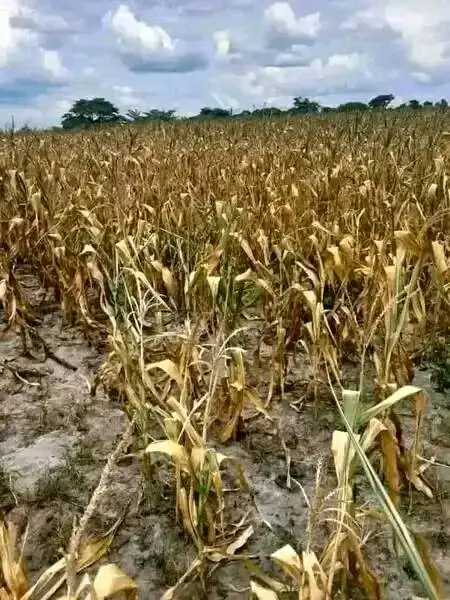
By Jeff Kapembwa
Leading lenders, World Bank and African Development Bank have extended capacity to three of the Southern African states to help realign economic growth trajectories using the private sector as front wheels while seeking to reduce poverty in rural homesteads and insulate the region against a recurrence of climate change which affected people and the environment.
Zambia, Malawi and Zimbabwe in laying capacity for private sector-led economic growth, improve service delivery, fight poverty and high inequality in rural areas and insulate against climate change.
Zambia’s plight in low job creations, among other shortcomings will be redressed under the World Bank’s 2024-2029 Country Partnership Framework (CPF), a blueprint to foster sustainable private sector-led economic growth, enhancing climate resilience, and improving the well-being of its people.
The CPF blueprint is expected to focus on three thematic areas: creating more and better jobs, improving human capital, and enhancing climate resilience, all in alignment with Zambia’s 8th National Development Plan and Vision 2030, though there are shortcomings.
This CPF will support efforts to improve service delivery to improve human capital outcomes and reduce persistent poverty, and high inequality, especially in rural areas.
It will also prioritize skills development, access to finance, and support for entrepreneurship, ensuring that women and the youth are not left behind.
This is despite improvements in education, health, and social protection, challenges remain in access to and quality of services. The CPF will prioritize private sector-led growth to foster conditions for inclusive, sustainable, and resilient economic development.
The World envisions the CPF being a ladder to promote private sector sustainability, improve investment climate, promote tourism, foster renewable energy and create a favorable investment climate. The CPF will enhance service delivery to improve human capital outcomes and reduce persistent poverty, and high inequality, especially in rural areas.
“Through this CPF the International Finance Corporation (IFC) will promote sustainable private sector development by working on advisory programs to improve the investment climate, supporting SMEs, and proactively engaging in the development of key infrastructure sectors including renewable energy, telecoms and digital, agribusiness, tourism, and financial services,” said Madalo Minofu, Country Manager for Zambia.
The CPF is informed by extensive consultations with a broad range of stakeholders in Zambia, which included government, private sector representatives, civil society, youths, faith-based organizations, academia, think tanks, and development partners.
“This new CPF outlines the priorities for the World Bank Group’s engagement to support Zambia during a critical time of recovery from shocks and refocus on inclusive and more resilient growth and job creation,” said Achim Fock, World Bank Country Manager for Zambia.
Other voices support Zambia’s open gaps creating distortions in the economy despite the country’s vision to attain the 8th National Development Plan and the Vision 2030. There is unwavering desire to bolster growth in agriculture productivity.
“The Multilateral Investment Guarantee Agency (MIGA) will continue to support Zambia by providing guarantees to improve agriculture productivity, boost job creation, deepen financial inclusion, and increase access to cleaner energy,” said Jessica Charles Wade, MIGA Senior Risk Management Officer.
And Africa Development Bank has approved and extended over US$38 million in grants towards climate resilience and adaptation in Malawi and Zimbabwe for vulnerable communities to reduce their vulnerability towards such risks after the El Nino induced drought swept and flattened the food security in most parts of the over 300 million-populated-Southern African region and prepare it against future calamities.
Under the Bank Group’s Africa Disaster Risk Financing (ADRiFi) initiative, the Mitigating Fragility through the Africa Disaster Risk Financing Programme in Southern Africa Project will bolster institutional capacity for climate risk preparedness and management.
Under the initiative, there are plans to increase financial protection against climate disaster risks through sovereign climate disaster risk transfer, and promote the adoption of index-based crop insurance to mitigate against drought and other production risks at the micro-level.
Study by the Pan African lender shows that Malawi and Zimbabwe lack adequate mechanisms for climate risk management and adaptation against significant climate hazards, such as droughts, tropical cyclones, and flooding.
Strengthening disaster risk management, improving early warning systems, and enhancing institutional arrangements are crucial for effective preparedness and resilience in these countries, the Bank highlights.
Under the project, insurance payouts will provide timely and adequate financial protection to mitigate losses incurred from climate-related disasters, safeguarding households, and businesses from falling into poverty or bankruptcy.
The project hopes that climate risk insurance will lead to behavioural changes among beneficiaries, such as increased investment in climate-resilient livelihoods or savings for future insurance premiums.
The funding is envisioned to build on the successes of the ADRiFi program and contributions from the firm’s partners, which have significantly enhanced the financial resilience of both Malawi and Zimbabwe.
During the El Niño-induced drought season of 2024-25, African Risk Capacity, the Bank’s partner on ADRiFi had disbursed over $45 million to support farmers affected by the drought, which provided crucial food assistance and recovery interventions, helping communities facing adversity to rebuild and thrive.
The project is aligned with the Bank’s “High 5 Priorities”, especially Feed Africa and Improve the Quality of Life of Africans.It also aligns with the Bank’s ten-year strategy (2024-2033) and will contribute to the Bank’s strategy for Malawi which focuses on supporting economic diversification through investments in agriculture infrastructure and value chains, the lender said in a statement.
